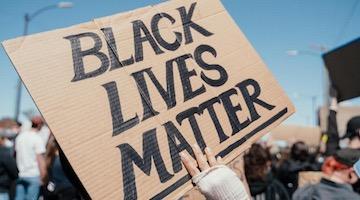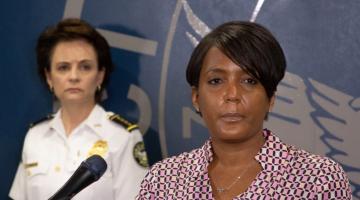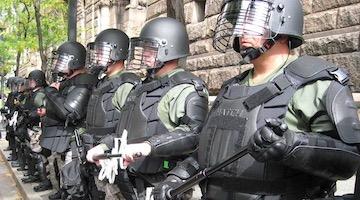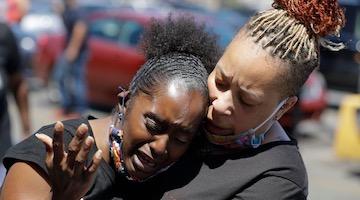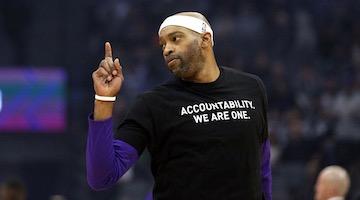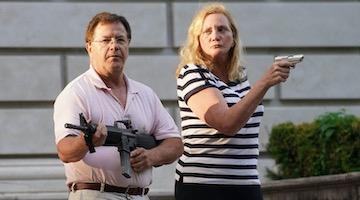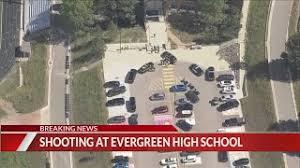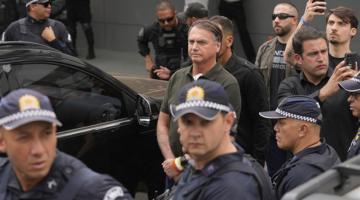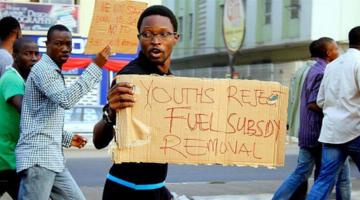How Black Lives Matter Changed the American Conversation About Israel and Palestine
The surge of attention to the Israeli occupation is unimaginable without last year’s “George Floyd” protests.
“In many ways, the change we are witnessing now has been a long time coming.”
In 1993, the Palestinian intellectual Edward Said, observed, “everyone knows that to try to say something in the mainstream Western media that is critical of U.S. policy or Israel is extremely difficult; conversely, to say things that are hostile to the Arabs as a people and culture, or Islam as a religion, is laughably easy.”
If you are only just tuning in, you might find these words hard to believe. Amid the surge of violence across Israel and Palestine in recent weeks—first triggered by the Israeli military’s brutal response to Palestinian protests over a threatened neighborhood in East Jerusalem—there has also been a surge in attention to the asymmetry inherent in this conflict. U.S. social media has been filled with critiques of the illegal Israeli occupation and accounts of the disproportionate use of force being meted out against civilians in the Gaza Strip in retaliation to rockets fired into Israel by Hamas. Teen Vogue even weighed in with op-eds calling for the end of the occupation of Palestine and an article relating Israeli human rights violations to American policing.
Friends who have always been silent on Palestine are speaking out for the first time and politicians like New York City mayoral candidate Andrew Yang are being forced to publicly walk back their unwavering support of Israel amid vocal criticism. While it’s hard to prove definitively, I suspect this change owes a debt to Black Lives Matter organizing and the response to George Floyd’s killing almost exactly one year ago.
As someone who grew up Palestinian in the United States in the 1990s and 2000s, this change in tone is remarkable. My family and I have long felt the impotence captured in Said’s words, of the laughable ease with which Palestine’s suffering was dismissed and its people vilified. From my privileged position on the sidelines, I recall periods of rupture, like the second intifada beginning in 2000 or the 2008 war on Gaza, through the maddening feeling of watching in disbelief as people being bombed and bloodied by a powerful state apparatus were simultaneously being dismissed as the “bad guys.” As friends and family on the ground in Palestine defended their right to live and move freely, in the U.S., we found ourselves continually defending their right to this defense.
In many ways, the change we are witnessing now has been a long time coming. Over the past decade, I have increasingly seen criticism of the way this conflict is understood and covered. U.S. newspaper headlines have been admonished for obscuring violence committed by Israeli soldiers through use of the passive voice. Pop stars like Lorde have publicly refused to perform in Tel Aviv as part of a boycott campaign against the occupation. During the 2019 Democratic presidential primary campaign, many of the candidates, including Bernie Sanders and Kamala Harris, publicly declined invitations to speak at the pro-Israel lobbying group AIPAC’s annual conference. This slow, if steady, trickle of awareness, has turned into a flood during this wave of violence.
What does any of this have to do with Black Lives Matter? Black-Palestinian solidarity stretches back decades, and from the first days of Black Lives Matter, organizers have explicitly linked these two movements. Philosopher and activist Angela Davis has long acknowledged the deep links between the U.S. prison-industrial complex, racial violence, and Palestinian political incarceration. During the protests in Ferguson, Missouri, after the police killing of Michael Brown in 2014, protesters held signs expressing solidarity with Palestinians and Palestinians took to social media to share instructions for how to treat tear gas.
“This slow, if steady, trickle of awareness, has turned into a flood during this wave of violence.”
The protests of last summer, spurred by the police killing of George Floyd pushed Black Lives Matter to the center of U.S. political discourse, transforming it from a controversial movement (in the eyes of some) to a mainstream political force that was impossible to ignore. Major corporations, celebrities, and universities that might have been silent before were proudly displaying their support for the phrase and the movement behind it.
In Palestine, too, George Floyd’s killing had an impact on the relationship between these two movements. For example, George Floyd’s image was painted on the separation barrier built around the occupied West Bank. After the fatal Israeli police killing of Eyad al-Hallaq, an unarmed Palestinian man, in Jerusalem, protesters in Palestine held up posters with al-Hallaq’s image next to that of George Floyd’s, bearing the slogan, “From the USA to Palestine… Racism is a crime.
The conversation and following generated in this moment have persisted. Black Lives Matter’s official Twitter handle has more than 1 million followers, and vocal activists around prison abolition and defunding the police also have followers numbering in the hundreds of thousandsto millions. These same organizations and activists have come out to strongly support the Palestinian people in the face of oppression at the hands of the Israeli state. The official Black Lives Matter movement—which even last summer was generating international solidarityuniting anti-racist movements across the world—has amplified calls for the U.S. government to stop Israeli human rights abuses. Many of the activists who gained prominence over the past year have stated unequivocally that silence about Palestine is akin to silence over racial injustice in the United States.
Anecdotally, the same people in my own news feeds who were sharing black squares one year ago are now asking me for information about Palestine and are making, for the first time, a public display of outrage over the U.S. government’s material support of the occupation and their own complicity. One Instagram explainer by a U.S.-based nonprofit stating, “What is happening in Palestine is not complicated; it’s settler colonialism” garnered half a million likes and was shared by former classmates from my high school in South Carolina—the same people who, when we were young, never acknowledged my family’s roots.
Beyond opening up new spaces for critique, this solidarity has also fostered more attention to how these technologies of oppression are not just operating in parallel but are intimately intertwined. Not only does the U.S. government give billions of dollars in military aid to Israel each year, but U.S. metropolitan police forces receive training in Israel. The same surveillance technologies and security contractors engaged to quell protests in the U.S. are also used by the Israeli military.
It is tempting to feel overwhelmed in the face of these interlocking apparatuses of oppression. However, the recent vocal attention to the tactics of militarized police in both the U.S. and Israel has shown that just as the technologies of oppression grow increasingly linked, so too does the resistance to these forms of oppression. In an otherwise dark time and a seemingly endless conflict, for those of us watching and working from the sidelines, this change from Said’s words in 1993 is a source of hope and renewed action.
Marya Hannun is a doctoral candidate in Islamic studies at Georgetown University.
This article previously appeared in Slate.
COMMENTS?
Please join the conversation on Black Agenda Report's Facebook page at http://facebook.com/blackagendareport
Or, you can comment by emailing us at comments@blackagendareport.com





